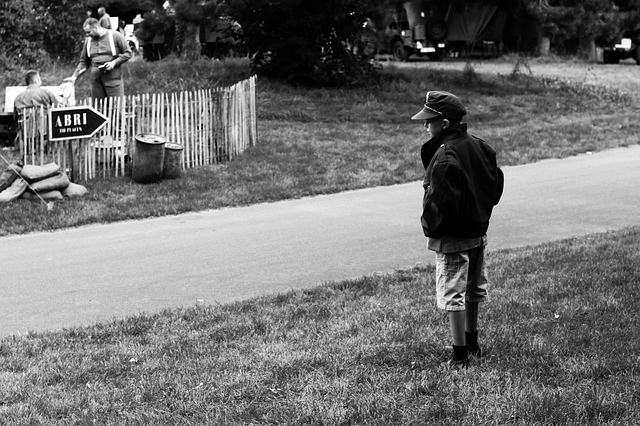Quick search
CTRL+K
Quick search
CTRL+K


Since 2010, the Global Law Experts annual awards have been celebrating excellence, innovation and performance across the legal communities from around the world.
posted 2 years ago
BY DR FELICITY GERRY QC
Modern day conflicts are rife with forced criminality. Victims are ‘made’ into perpetrators, with legal and factual complexities. To-date, the appropriateness of ‘non-punishment’ models to interpretation of Rome Statute remain unexplored, despite the relevance of the ‘non-punishment’ principle to autonomy and criminal responsibility.
In the International Criminal Court in The Hague, Dominic Ongwen has been found guilty of 61 counts of crimes against humanity and war crimes committed after 1 July 2002 in northern Uganda. There was no dispute that Dominic Ongwen was a former child soldier who rose to a leadership position in the Lord’s Resistance Army (LRA). There were issues in relation to his command responsibility and his mental capacity arising from his being a victim of atrocities as a child. In summary of the situation and his responsibility was given by the Trial Chamber as follows:
The Trial Chamber found that “these crimes were committed in the context of the armed rebellion of the Lord’s Resistance Army (LRA)against the government of Uganda. The LRA, including Dominic Ongwen, perceived as associated with the government of Uganda, and thus as the enemy, the civilians living in Northern Uganda. This concerned in particular those who lived in government established IDP camps”.
The Trial Chamber also found that Dominic Ongwen was “fully responsible for all these crimes”. The Trial Chamber “did not find evidence that supported the claim that he suffered from any mental disease or disorder during the period relevant to the charges or that he committed these crimes under duress or under any threats”.
On appeal, our team filed an amicus curiae brief addressing the legal frameworks surrounding criminal responsibility, duress and sentencing for former child soldiers. This concerns the broad question is how an international criminal justice system can act as both protector and prosecutor when there is a victim / perpetrator paradigm.
The circumstances in Uganda were of course appalling but legal principle for all former child soldiers is important. Currently, there are two principal approaches to ‘non punishment’: The compulsion-based approach excuses the criminal act to committed under a high degree of pressure. The causation-based approach recognises the direct result of the trafficking situation thus justifying exoneration of the victim. Our core contribution was to suggest that there are certain identifiable principles which enable the Appeal Chamber to provide a coherent framework within the existing law to protect victims of trafficking and slavery who offend – where appropriate. This was done because The Trial Chamber declined to discuss or outline any legal principle on Mr Ongwen’s experience as a former child abductee and conscript at trial, or at sentencing. At first sight, the Rome Statute eschews the civilian classification of ‘bars to responsibility’, ‘justifications’ and ‘excuses’. However, on closer inspection it becomes clear that this classification does underlie the system and we suggested a workable taxonomy for interpretation of Art 31(1)(d) and Art 31(3) of the Rome Statute.
Our role was to assist the Appeal Chamber with the principles of non-prosecution/non-punishment of victims of human trafficking (including modern slavery) where criminal culpability (or responsibility or criminality) is reduced or extinguished and how that applies in the context of the framework provided by Article 31(1)(d) of the Rome Statute.
We submitted that the Appeal Chamber should consider the principles in the regional and international instruments to ensure that there is a coherent framework which accords with international law concerning the protection of VOTs and children. This may properly be done within the existing framework of the Rome Statute. Whilst trials involve persons over 18, the Court has a wider accountability mechanism that includes the payment of reparations to victims so it is important to identify who is fully responsible, who is not responsible because their crimes were compelled by the consequences of their victimhood as a former child soldier and where punishment may be reduced as a recognition of past victimhood.
This is particularly important because conscripting or enlisting children under the age of fifteen years into armed forces or groups or using them to participate actively in hostilities is itself recognised as an international crime and protection through non-prosecution/non-conviction/non-punishment of those victims is a necessary corollary to the fact that slavery and slavery like practices are themselves atrocities. The court has rightly expressly aligned itself to the protection of child soldiers. The issue is how far does that stretch. It may not lead to exoneration for Dominic Ongwen. Indeed, we expressly refused to comment on his responsibility and sentencing but it does create an opportunity for the international criminal court to formulate a legal frame work, not an appeal de novo but as a review process to ensure that victims are not wrongl prosecuted and convicted when their crimes are a direct consequence of their status as a former child soldier.
The framework which can be applied in decision making as to whether or not a child victim should be prosecuted or punished involves the following principles:
These we suggested are matters of law which the Trial Chamber did not identify : Paragraph 2581 of the Trial Chamber decision merely reads: Duress in Article 31(1)(d) of the Statute has three elements. The first element is that the conduct alleged to constitute the crime has been caused by duress resulting from a threat of imminent death or of continuing or imminent serious bodily harm against that person or another person. The threat in question may either be:
The threat is to be assessed at the time of that person’s conduct.
We submitted that the trial chamber erred in approaching Art 31(1)(d) as defining a defence of duress. Art 31(1)(d) does not define a defence of duress. It incorporates duress as an element. It is wider than duress by threat. It encompasses justifications or excuses. Put another way, it encompasses duress of circumstances, including long term effects of recruitment. When a child is ‘made’ a soldier, he will be “recruited” (the act of trafficking) for “exploitation” for “criminal activity” (the “purpose” of trafficking). That renders the child a victim of trafficking. The means of trafficking necessary for an adult to be a victim do not need to be established for a child to be a victim. Child soldiers are necessarily victims of human trafficking. The trafficking is itself an atrocity. The legal context is
The international legal framework is thus wider than duress and apt to include a non-prosecution framework for victims who offend:
In the context of former child soldiers who offend, the nexus between the trafficking and its long term effects and the offending is relevant to responsibility / criminality.
First, it is helpful to consider whether the person was a child soldier?
Next, go on to consider – Is that person suffering continuing effects from their experience of this extreme form of human trafficking? This is relevant to the reparations, accountability and transitional justice aims of the International Criminal Court. In relation to some adults the continuing effects can be so severe that they continue to lack culpability. If there are adults who progress to positions of power and responsibility where then there is a question to be answered as to their ‘regaining’ of agency or autonomy. In some cases, there can be findings that the person lacked agency/ autonomy, and in others that they acted according to their own will. This requires the court to carry out such an assessment, even if it is beyond the arguments of the parties, which is consistent with the courts situation jurisdiction – understanding the context – as well as individual accountability. Some will have responsibility, others will not. For those who do, their past experiences should be acknowledged in mitigation of sentence in the way we suggested in our written submissions. For those who do not, the result is exoneration.
The legal approach we suggested fell between the prosecution / victims groups on one side called evidence of monstrous conduct and the defence calling evidence of his severe mental illness caused by monstrous conduct. Where the Trial chamber did not address the protection of former child soldiers as a question of law itw as open to the Appeal Chamber to acknowledge child victimhood and to identify at what point agency is achieved, if at all. This might be at a different point in relation to what went on inside his home compared to what actions he took as a commander of operations outside his home. It requires a review of evidence by Appeal Chamber applying a legal framework beyond the mere findings of fact by the Trial Chamber to reflect the public interest in balancing compulsion v criminality and to reconcile the two extremes of protection and punishment.
Author


There are no results matching your search.
Resetposted 1 hour ago
posted 1 hour ago
posted 1 hour ago
posted 2 hours ago
posted 1 day ago
posted 1 day ago
posted 2 days ago
posted 2 days ago
posted 2 days ago
There are no results matching your search.
ResetFind the right Legal Expert for your business
Sign up for the latest legal briefings and news within Global Law Experts’ community, as well as a whole host of features, editorial and conference updates direct to your email inbox.
Naturally you can unsubscribe at any time.
Global Law Experts is dedicated to providing exceptional legal services to clients around the world. With a vast network of highly skilled and experienced lawyers, we are committed to delivering innovative and tailored solutions to meet the diverse needs of our clients in various jurisdictions.